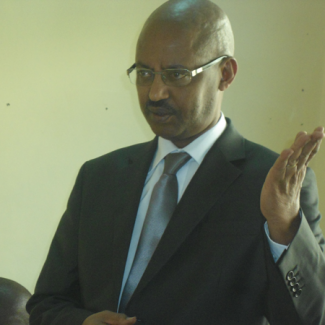The economics of low carbon cities: Promoting energy access and energy efficiency in urban Africa
- City authorities are faced with rapidly growing energy demand and adaptation needs, but often lack the expertise to identify the most relevant or attractive measures.
- This project maps cost-effective, low-carbon energy growth pathways for Kigali, which can act as a model for other African cities.
- There are many economically attractive opportunities to promote a more sustainable form of development, in turn improving Kigali's economic competitiveness, energy security, and carbon intensity.
- The report's dissemination was well received by national and city-level policymakers and continues to be refined as more data around energy usage and access in Kigali emerges – acting as a ‘living’ document.
This report provides an economic case for securing low-carbon and climate-resilient investments in the city of Kigali, which could act as a model for other rapidly growing African cities. The report gives prioritised lists of the most cost- and carbon-effective measures that could realistically be promoted across the housing, commercial buildings, transport, and waste sectors based on models built around data collected in 2018.
A continuation of current trends from 2018 to 2032 would see total energy use (and emissions) in Kigali rise by over 167%. Since publication, this study has engaged many national and city-level policymakers, including REMA, the Rwandan Housing Authority, the Rwandan Energy Group, and the President’s office.
In addition to providing a static ‘snapshot’ of the opportunity for cost- and carbon-effective measures in Kigali today, the models behind the analysis presented can be updated to provide a means for this report to be a ‘living document’ that can remain useful in the future.





